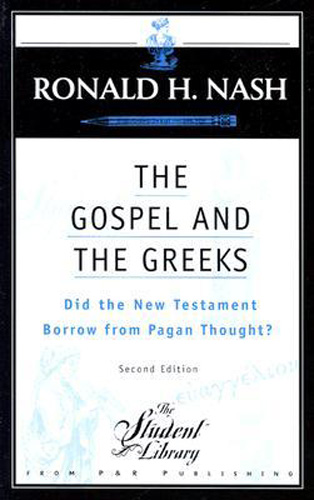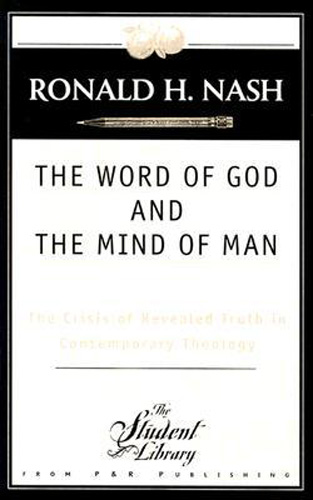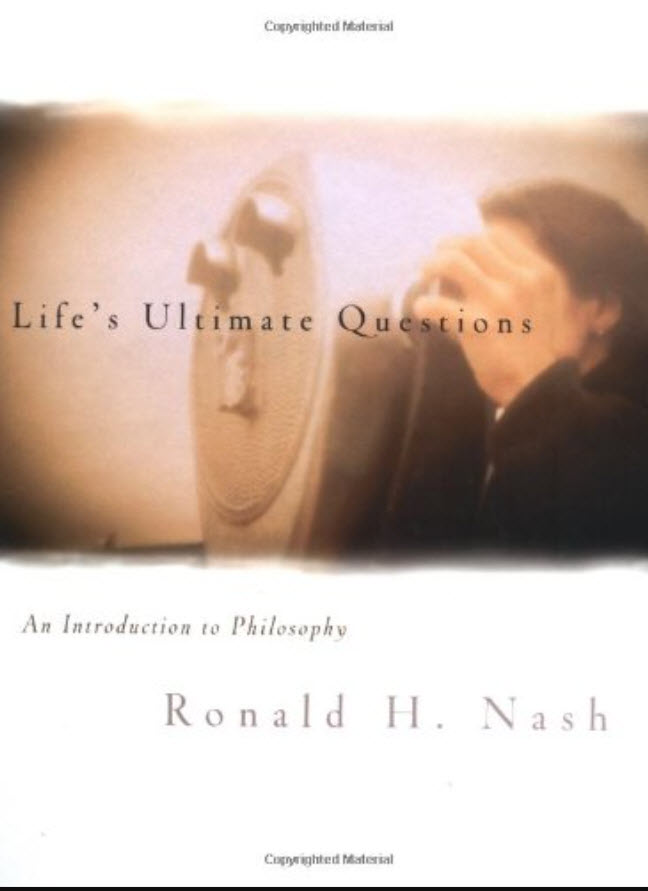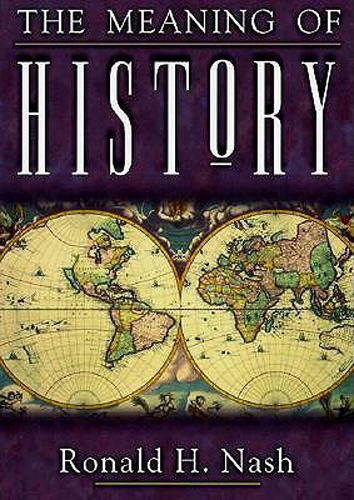History of Philosophy and Christian Thought - Lesson 6
Platonic Philosophy
Plato was a student of Socrates and lived into the fourth century BC. He opposed hedonism, empiricism, relativism, materialism, atheism and naturalism.

Platonic Philosophy
Platonic Philosophy
Part 1
I. Plato's Life
A. Plato is a nickname of Aristocles, who came from a distinguished Athenian family.
B. He became a student of Socrates at age 28.
C. At age 40, he founded The Academy; he died at age 80.
D. Approximately 30 of his known writings have survived. They are divided into three categories: Early, Middle, and Later Dialogues.
II. Seven Ideas that Plato Opposed
A. Hedonism
B. Empiricism
C. Relativism
D. Materialism
E. Mechanism
F. Atheism
G. Naturalism
Introduction
0% Complete- 0% Complete
Thales and Anaximander were two philosophers in the sixth century BC that lived in Miletus.
0% Complete - 0% Complete
Heraclitus and Pythagoras lived into the 5th century BC.
0% Complete - 0% Complete
Any worldview addresses the subjects of God, ultimate reality, human knowledge, ethics and human persons.
0% Complete - 0% Complete
Fundamental beliefs of a naturalistic worldview is that nothing exists outside the physical universe and that all things evolved.
0% Complete - 0% Complete
Plato was a student of Socrates and lived into the fourth century BC. He opposed hedonism, empiricism, relativism, materialism, atheism and naturalism.
0% Complete - 0% Complete
Plato described the universe as having three levels: the world of particulars, the world of forms, and the form of the good.
0% Complete - 0% Complete
Plato's view of the universe was dualistic.
0% Complete - 0% Complete
One of Plato's fundamental arguments is that the human soul is immortal.
0% Complete - 0% Complete
Evaluation of Plato's arguments and comparison of Plato's philosophy with biblical theology.
0% Complete - 0% Complete
Empiricism teaches that all human knowledge arises from sense experience. Rationalism teaches that some human knowledge does not arise from sense. experience
0% Complete - 0% Complete
Aristotle was a student of Plato and lived in the fourth century BC.
0% Complete - 0% Complete
Aristotle rejected Plato's doctrine of two worlds.
0% Complete - 0% Complete
Discussion of Aristotelian philosophy as it relates to the incarnation.
0% Complete - 0% Complete
Aristotle's philosophy as it relates to attributes of God and fundamental assumptions about psychology.
0% Complete - 0% Complete
Aristotle made a distinction between passive intellect and active intellect.
0% Complete - 0% Complete
Discussion of the strengths and weaknesses of the law of non-contradiction.
0% Complete - 0% Complete
Discussion of the nature and substance of matter.
0% Complete - 0% Complete
Hellenistic philosophy was an approach that was popular from the fourth century BC to the fifth century AD.
0% Complete - 0% Complete
Stoics were determinists who believed in living according to nature.
0% Complete - 0% Complete
Hedonism emphasized pleasure as the greatest good. "Eat, drink and be merry for tomorrow we might be dead."
0% Complete - 0% Complete
Philo's philosophy was based on a synthesis of Stoicism and Platonism.
0% Complete - 0% Complete
Implicit "Logos" Christianity is an underlying theme in the book of Hebrews.
0% Complete - 0% Complete
Plotinus lived in the third century AD and is considered the founder of Neoplatonism.
0% Complete - 0% Complete
Augustine is a Latin church father, is considered by many to be one of the most important figures in the development of Western Christianity.
0% Complete - 0% Complete
Augustine wrote Confessions as an autobiographical work to record his experience as a sinful youth and his experience becoming a follower of Christ.
0% Complete - 0% Complete
Augustine wrote to refute some heresies of the day by focusing on the concepts of faith and reason.
0% Complete - 0% Complete
Augustine writes about the problem of evil and describes evil as the absence of good.
0% Complete - 0% Complete
Augustine writes to refute Pelagianism by focusing on the biblical teaching about sin.
0% Complete - 0% Complete
Augustine writes to refute Donatism.
0% Complete - 0% Complete
The fundamental idea of skepticism is that no one can know anything. Augustine this statement contradicts itself because the skeptic is claiming that you can know that you can't know anything.
0% Complete - 0% Complete
When Augustine wrote "The City of God," he had a linear view of history.
0% Complete - 0% Complete
In Augustine's theory of knowledge, he says that eternal reason and human reason are two different levels of reason.
0% Complete - 0% Complete
Augustine was personally convinced of the importance of divine illumination.
0% Complete - 0% Complete
The intellectual background of Thomas Aquinas was influenced by the discovery of ancient manuscripts, the rise of universities, the rise of religious brotherhoods and the rise of Muslim philosophy.
0% Complete - 0% Complete
Aquinas describes faith as whatever a human can know through special revelation, and reason as whatever a human can know outside of special revelation.
0% Complete - 0% Complete
Aquinas attempts to prove God's existence.
0% Complete Aquinas describes four kinds of law as eternal, divine, natural and positive.
0% Complete- 0% Complete
The rationalists and empiricists set the stage for Kant and other philosophers of the modern era.
0% Complete - 0% Complete
Kant argued that moral requirements are based on a standard of rationality he dubbed the “Categorical Imperative."
0% Complete - 0% Complete
Kants two worlds are the phenomenal world and the noumenal world.
0% Complete - 0% Complete
Discussion of criticisms and questions about Kant's ideas.
0% Complete - 0% Complete
Similarities between Kant's ideas and postmodernism.
0% Complete - 0% Complete
The dialectic is a central idea in Hegel's philosophy.
0% Complete - 0% Complete
Ideally, Marxism begins with class struggle, then revolution, dictatorship of the proletariat, withering away of the state, and a utopian classless society.
0% Complete - 0% Complete
Discussion of four faces of Marxism.
0% Complete - 0% Complete
Nietzsche proclaimed that, "God is dead." His cure was to live life knowing there is no ultimate meaning. Kierkegaard emphasized a worldview based on true faith.
0% Complete
In this class, you will explore the rich history of philosophy and its relationship with Christian thought. The course begins with an introduction to the definition and importance of philosophy in Christian theology. You will then delve into the evolution of philosophical thought from the Pre-Socratic era, through the Classical Greek philosophers, and into the Hellenistic period. As you progress, you will discover how early Christian thought emerged and developed during the Patristic period, with a special focus on Augustine. The class continues with an examination of medieval Christian thinkers, such as Anselm and Thomas Aquinas, and concludes with an analysis of modern philosophers like Descartes, Kant, and Kierkegaard, and their influence on contemporary Christian thought.
Two other books that are recommended reading for this class are Confessions by Augustine and Phaedo by Plato.
Recommended Books
The Gospel and the Greeks: Did the New Testament Borrow from Pagan Thought?
Examines contemporary claims for Christian dependence on Hellenistic philosophy, Greco-Roman mystery religions, and Gnosticism. He finds the case for dependence in the...

The Word of God and the Mind of Man
The last two centuries of Christian theology are the record of an evolving attack on the role of knowledge in the Christian faith. The purpose of this book is to challenge...

Life's Ultimate Questions: An Introduction to Philosophy
Life's Ultimate Questions is unique among introductory philosophy textbooks. By synthesizing three distinct approaches

The Meaning of History
The Meaning of History is a concise look at the meaning of the history of the world from the viewpoints of major historians and philosophers. By examining the individual...

Dr. Ronald Nash
History of Philosophy and Christian Thought
th620-06
Platonic Philosophy
Lesson Transcript
Now let's talk about Plato. Life was suddenly become worthwhile as we get into Plato. Turn to the first page of the chapter on Plato. Let me tell you a little bit about his life. And let me also tell you that I'm sorry that we don't have more time to talk about Socrates, because without Socrates, there would have been no Plato. But you can't do everything. And so Socrates gets shortchanged here, except we will read about the execution of Socrates in the feet of Plato, to the best of our knowledge, was born in 427 B.C.. The calendar is a little bit awkward there. He might, you know, some books say for 27. For 28. At the age of 28, Socrates was executed. And the description of that appears in the Fito. Even though Plato was nominally a follower of Socrates, he really wasn't all that committed. It was, in fact, the quite unjust execution of Socrates that seems to have produced a kind of new commitment to philosophy. On Plato's part, Plato was not really this gentleman's real name. His birth name was a risk to Klee's Arista colleagues. And Plato seems to have been a kind of nickname. And I'm reading here from page 59, Look at what my editor did say. I'll tell you what the original manuscript said, and my editor changed it. I said that Plato was a nickname. That means fatso. All right, so the world's greatest philosopher is really known to us today, not by his real name, but by a nickname that means Fatso. And my editor cut that out. I think he was trying. He didn't want to offend any fat people. Well, shucks, I'm not. No one calls me Slim anymore. All right, You could call me.
[00:02:15] Oh, I've never said this before. You have my permission to call me Plato. All right. And while we're at it, Plato was also bold. Many great thinkers have very little hair. Okay. Then Plato left Athens after Socrates was executed, and he began travels. Some people think that he may have traveled to the eastern Mediterranean. One thinker, a couple of thinkers, have suggested that he met the Prophet Jeremiah. Well, obviously, they don't know their biblical chronology. The reason they think he may have had contact with some of the writers of the Old Testament is his view of God that we will notice later. It really I mean, it is not hard to imagine that Plato met up with somebody who had a pretty accurate understanding of God, the Judeo-Christian view, the the Jewish view. But I doubt that he went to Egypt. I do not think he went to Palestine. He certainly didn't meet Jeremiah because Jeremiah was long since dead by now. But he traveled to Italy, made several trips to Italy, to Sicily, and there encountered the pythagoreans or so tradition tells us. He then returned to Athens, but he did found his university in 387 B.C.. That university is called the Academy, and he established it in Athens and later on will discover that there were other universities or what were called what we today call universities. There was nothing like Syracuse University back then in Athens or the Athens, you know, the State College of Athens. It was just a kind of a place where Plato taught and his students took notes and so on. Plato then died in 347 B.C.. Plato's Dialogs. Plato's Writings. Many of his writings are called dialogs because they communicate through speeches or talks or conversations. Not all of them.
[00:04:39] For example, the apology is not a dialog. The apology is a record of Socrates trial. But most scholars find it helpful to distinguish or or to divide Plato's dialogs into three groups the early dialogs. The later dialogs. And what would be the third group. Now, of course, I was playing with you there, who said middle dialog? Isn't that scary? You know what? You've just. You are thinking my thoughts after me. Or who? Who? What? Notice to what great teaching you're getting here. All right. All of a sudden, a great teacher has the ability to stimulate a student into coming up with a right answer. The middle dialogs. You'll see other examples of that great teaching later in the course. The middle dialogs. Okay. In the early dialogs, Plato is a relatively young man. Socrates is the major figure, and there are really no great metaphysical theories that are articulated. Examples of the early dialogs would include the apology, The Cradle and the Beach feature of an early dialog is this Its focus is on an ethical subject, like what is justice? What is piety? And no answer is really given. The subject is ethical and no answer is really given. In the middle dialog. Several changes occur because Plato was now more mature. Socrates becomes largely a spokesman for Plato's own ideas. So you'll you'll read Plato saying, You read Socrates reading, saying things, but they're not his own ideas. For example, in the feito is a middle dialog. All of the ideas that come that come through Socrates mouth in the FETO are not really things that Socrates knew or could have taught. They are Plato's ideas, and he just seeks to honor Socrates by putting his ideas into the mouth of Socrates. And then you come to the later dialogs.
[00:07:08] And here Plato's a crotchety old man. She doesn't even. Socrates doesn't even appear. The spokesman in one of his later writings is called The Stranger from Athens. And during all of these periods, there are subtle, sometimes significant changes. And so it is helpful to know when where a dialog fits in this scheme and before you can interpret it. Now, I want to tell you about seven ideas that Plato attacked throughout his career. Seven ideas that Plato attacked throughout his career. The first one was Hedonism. What was hedonism? Well, we already mentioned that hedonism was the preferred ethic of the animists of Democritus and Epicurus. Hedonism is the belief that pleasure is the highest good. Many years ago. This used to be the moral philosophy of the average college sophomore. Today, hedonism is the moral philosophy of the average high school sophomore. Who knows? Of course, it's also the moral philosophy of some previous presidents that we've had in this country as well. Hedonism. Plato was an enemy of hedonism. Amen, brother. Go after. Okay. Next. Plato was an enemy of empiricism. What is empiricism? It is the delusive belief that all human knowledge arises from sense experience. Listen to me. Right now. Most of you are empiricist. I know what empiricism is. One of the manifestations of original sin and total depravity. And much of this course is going to be devoted to delivering you from the clutches of empiricism. Next thing, relativism. There are two kinds of relativism. There is ethical relativism. That right and wrong is relative from person to person and culture to culture and so on. And there is epistemological relativism. That's the belief. The truth is relative. Plato was an enemy of relativism. Next thing was materialism and then mechanism.
[00:09:57] That, of course, would be most of the pre-socratic. The the mechanism would be atomism. Then I'm sorry I should have started this higher a theism. Plato was an enemy of atheism. And finally he was an enemy of naturalism. Read the book. Now what we have here are seven letters that make up a misspelled version of the word Herman, which happens to be my middle name. Now think with me. Nash was born on the birthday of Philosophy. Nash is given on the day he was born. The birthday philosophy. He's given a middle name that loosely is loosely analogous with all of the evil positions that the great Plato refuted in his lifetime. Are you beginning to get a message here, Herman? Okay. My middle name. So, May 27, Herman. Wow. Talk about determinism. Okay. I want to read a great tribute to Plato from this book, The Gospel and the Greeks. I want you to turn. Just be with me here to page 32. What a tribute this is. This comes from a book called An Introduction to Ancient Philosophy by A.H. Armstrong. Man, I wish someday somebody would write a tribute to me like this. Okay, let me read this. Some of you didn't bring your books. But your loss. Okay. Page 32. Everyone who believes in an objective and unchanging standard of morality governing public as well as private life. Do you believe there? Everyone who believes in the soul as immaterial and immortal as the most important part of man. Everyone who believes in the governance of the world by divine reason and in the existence of eternal archetypes are patterns of all things that come to be and pass away with which our behavior and thought must conform. Everyone who believes all this or an important part of it, can claim to be in the tradition which goes back unbroken to Plato and Socrates.
[00:12:38] Wow. Though the later development of the platonic school and much more, the transforming influence of Christianity have very much altered the content of these beliefs, yet the tradition of their development has been continuous. Listen to me. I am not a blind follower of Plato. Plato made many big blunders. Okay, But doggone folks in a world like we live in today. To have a man on our side of his stature defending convictions. That ought to be important to us. Hmm. Continuing to read however much we may find ourselves in disagreement with Plato on really serious and vitally important subjects. And I do disagree with Plato on these issues, such as the nature of God, the eternity of the cosmos, the uncreated ness of matter, the value to be attached to the body and to sense experience. Yet in other vital matters, we are still of Plato's School. As against the host of materialists. Pardon me. Boo! Relativists? Yes, pragmatists. You're out. Positive tests. Not on your life. Deniers of any eternal, universal and objective truths or standards who dominate so much of our thinking today, and whose Keebler predecessors were dealt with by Plato in his time. Listen. Find out how Plato blew these people away. All of these big ideas in today's universities. Plato exploded these theories. 300 years before Jesus was even born. And I don't know you. You get the point there. I'm I'm. I'm telling you that there's nothing new under the sun. These crazy ideas that are so popular today. Plato refuted them. And if you pay attention, you're going to learn how to refute them as well. We who still hold to the older traditional on Plato's side and he and Socrates are on our side and we should reverence them as of the greatest among the founders and fathers of our thought.
[00:15:06] Wow, what a tribute. Well, that's what's ahead of us.